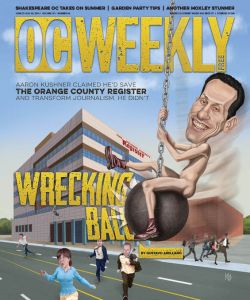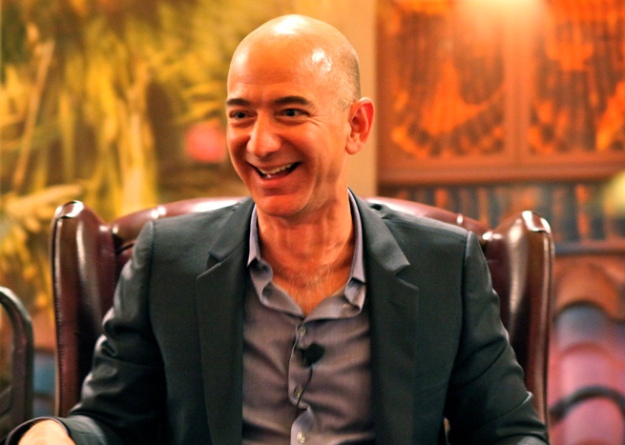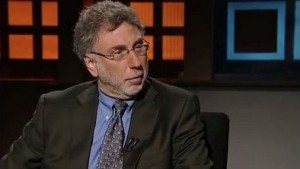
Previously published at WGBHNews.org.
Tuesday may have been the biggest day yet for billionaire newspaper owners John Henry and Jeff Bezos. Henry’s Boston Globe launched the long-anticipated Crux, a free standalone website that covers the Catholic Church. And Bezos replaced Katharine Weymouth as publisher of The Washington Post, bringing an end to the 81-year reign of the Meyer-Graham family.
At a time when the newspaper business remains besieged by cuts (including 22 Newspaper Guild positions at The Providence Journal this week, according to a report by Ian Donnis of Rhode Island Public Radio), Henry and Bezos are taking the opposite approach.
“You can’t shrink your way to success,” new Washington Post publisher Frederick Ryan told Michael Calderone of The Huffington Post. “Growth is the way to continue to build a strong news organization.” Ryan’s words were nearly identical to those of the Globe’s chief executive officer, Michael Sheehan, at the unveiling of the paper’s weekly political section, Capital, in June: “You can’t cut your way to success. You can only grow you way to success.”
First Crux. To my non-Catholic eyes, the site appears to offer an interesting mix of the serious and the not-so-serious. The centerpiece is John Allen’s deeply knowledgeable reporting and analysis, some of which will continue to appear in the Globe. (In late August, Publishers Marketplace reported that Allen is writing a biography of Pope Francis with the working title of “The Francis Miracle.” No publisher was named, but according to this, Time Home Entertainment will release it in March 2015.)
Crux national reporter Michael O’Loughlin has weighed in with features on Native American Catholics who blend tribal and Roman traditions and on the Vatican Secret Archives, whose contents turn out to be not as interesting as the phrase makes them sound. Vatican correspondent Inés San Martín covers stories such as Pope Francis’ call for peace in Gaza. WGBH’s Margery Eagan, a former Boston Herald columnist, is writing a column called “On Spirituality.” The events calendar makes it clear that Crux is a very Catholic venture.
There’s a lighter side to Crux, too, such as a trivia quiz on the saints and updates on football teams from Catholic colleges. Crux’s own reporters are supplemented with wire services, including the Associated Press, Catholic News Service and Religion News Service, as well as personal essays such as the Rev. Jonathan Duncan’s rumination on life as a married Catholic priest with children (he used to be an Episcopalian). Crux is also asking readers to write brief essays; the debut topic is illegal immigration.
Two quibbles. An article on the suffering of Iraqi Christians was published as a straight news story, even though the tagline identifies it as coming from “the pontifical organization Aid to the Church in Need.” When you click to “learn more,” you find out that Church in Need is an advocacy organization that is actively seeking donations. The disclosure is sufficient, but the placement strikes me as problematic. If Crux were a print newspaper, the article could have appeared on the op-ed page. Crux needs a clearly marked place for such material as well.
My other quibble is that content is undated, leaving the impression that everything is now. That can cause confusion, as with a John Allen Globe piece on immigration that refers to “Friday night” — and links to an Associated Press story published on Aug. 2. (Dates do appear on author bios.)
The site is beautifully designed, and it’s responsive, so it looks good on tablets and smartphones. There are a decent number of ads, though given the state of digital advertising, I think it would make sense — as I wrote earlier this summer — to take the best stuff and publish it in a paid, ad-supported print product.
Globe editor Brian McGrory, Crux editor Teresa Hanafin, digital adviser David Skok and company are off to a fine start. For more on Crux, see this article by David Uberti in the Columbia Journalism Review and this, by Justin Ellis, at the Nieman Journalism Lab.
***
A torrent of punditry has already accompanied the news that Frederick Ryan, a former chief executive of Politico, will become publisher of The Washington Post on Oct. 1.
The irony is thick. When Post political reporters John Harris and Jim VanDeHei proposed launching Politico under the newspaper’s auspices in 2006, they were turned down. Today, Politico often dominates the political conversation in a way that the Post used to (and, of course, sometimes still does). I’m not always a fan of Politico’s emphasis on politics as insider gamesmanship, but there’s no doubt the site has been successful.
As the Post’s own account makes clear, Ryan is a longtime Republican activist, and was close to both Ronald and Nancy Reagan. That shouldn’t affect the Post’s news operations, though it could affect the editorial page — hardly a bastion of liberalism even now. In another Post story, Ryan “endorsed” executive editor Marty Baron and editorial-page editor Fred Hiatt. Baron, a former Globe editor, may be the best newspaper editor working on this side of the Atlantic.
What concerns me is the strong scent of insiderism that is attached to Ryan. In an address to the staff, Ryan said one of his goals is “winning the morning,” according to a series of tweets by Post media blogger Erik Wemple (reported by Jim Romenesko). That might seem unremarkable, except that it sounds like something right out of the Politico playbook — um, make that “Playbook.”
A New York Times account by Ravi Somaiya dwells on Ryan’s obsession with the annual White House Correspondents Dinner, and quotes Ryan as calling it “an important event.” Those of us who find the dinner to be an unseemly display of Beltway clubbiness might agree that it’s important, but for different reasons.
Then again, if Ryan can fix the Post’s business model and show the way for other news organizations, all will be forgiven. The Post, like the Globe, has been expanding under new ownership. On Tuesday, the Post unveiled its most recent venture, The Most, an aggregation site.
Bezos’ track record at Amazon shows that he’s willing to take the long view. I suspect that he’s still just getting started with the Washington Post.









